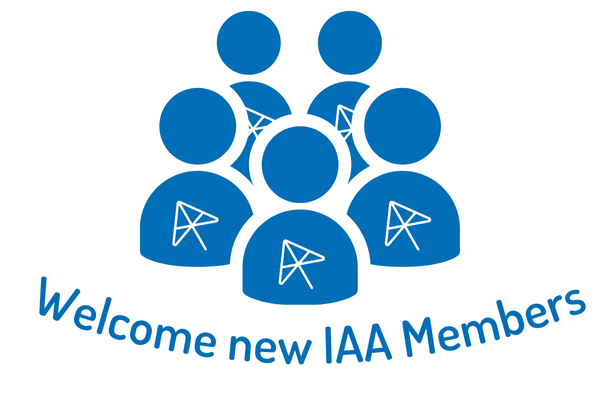The past couple months has been very busy for the policy team, and we continue to see various legislative and regulatory reforms in the telco sector.
Please get in touch to share any thoughts on any open and previous submissions; we always appreciate your feedback.
CDR Paused For Telcos
Treasury has confirmed that the expansion of the Consumer Data Right (CDR) Scheme has been paused for the telecommunications sector. Following the release of the 2023-24 Budget, it was revealed that $88.8 million will be invested over 2 years to support the CDR in banking, energy and non-band lending sectors and deliver a cyber security uplift. As had been speculated, it was further announced in the CDR Framework Design and Strategy, that a strategic assessment is planned for the end of 2024. This is to inform future expansions of implementation of action initiatives, including in the other sectors. This strategic assessment will require the consideration of new criteria, and consultation process.
The telco industry has long been pushing back on the expansion of the CDR into the sector. With plenty of information already provided to customers in an accessible format, in accordance with the Telecommunications Consumer Protections Code, as well as switching between telco providers being a feature within the industry, representatives have disputed the need for the CDR Scheme.
This pause is welcome news. We look forward to continuing consultations with government, should discussions surrounding the implementation of the CDR for the telco sector arise again. You can read our previous responses to consultations related to the CDR for further details.
Completed Submissions
Copyright Enforcement Review | Attorney General Department
The Attorney General Department consulted on its Issue Paper regarding the review of Australia’s copyright enforcement regime. In our response, we pointed out the dangers of relying on website blocking schemes due to their inherent impact on the openness of the Internet, and the likelihood of motivated actors to go around these blocks. We also recommended finding other mechanisms outside of the court system to enforce copyright protection, and to focus on reducing infringement of copyright laws as opposed to enforcement after the fact.
Internet Carriage Services Online Safety Code | Industry Associations
Following the eSafety Commissioner’s response to the first round of the industry Online Safety Codes, the industry associations released round two of the Codes. We submitted specifically to Code 7 for Internet Carriage Services. Our response focused on the need to ensure compliance measures balance the protection of individuals with the need to minimise unnecessary burdens on ISPs.
ACMA Compliance Priorities 2023-24 | ACMA
We responded to the ACMA Compliance Priorities for 2023-24 and emphasised that rather than focusing on enforcement measures, the ACMA should prioritise encouraging compliance. We suggested this could be achieved via industry and community engagement, education and awareness and lowering the burden of regulatory compliance for industry.
Privacy Act Review Report | Attorney General Department
The Attorney General Department released its Privacy Act Review Report, which proposed various significant reforms to the Privacy Act. Should the Privacy Act be amended as per the proposals contained in the Report, these changes could prove to have substantial impacts, such as the removal of the small business exemption that currently exists. Our response reiterated positions we have expressed in previous submission regarding privacy legislation. In particular, we emphasised the need to focus on ensuring best practice data and personal information handling practices through collaborative means, as opposed to the expansion of the APPs that does not necessarily ensure compliance with the complex regulation.
2023-2030 Australian Cyber Security Strategy | Department of Home Affairs
The Department of Home Affairs and the Strategy Expert Advisory Board sought feedback on the 2023-30 Australian Cyber Security Strategy Discussion Paper. Our response primarily focused on the need for greater genuine engagement and collaboration, to ensure a truly effective approach to cyber security. In the context of increasing regulatory requirements for the telco sector in relation to data security, critical infrastructure and privacy, we emphasised the need to harmonise and simplify the current policy landscape for an effective and efficient strategy that combats the threats and risks to Australia’s cyber security.
Final Access Determination (SBAS) | ACCC
The ACCC released its Exposure Draft to the Superfast Broadband Access Service Final Access Determination. This draft instrument was based on the ACCC’s decision released in October 2022, with limited incorporation of stakeholder feedback to the consultation held during December 2022. Our response reiterated our positions stated in our response during the December consultation, including the extension of the Determination to cover all residential TC-4 speed tiers at NBN Co pricing, and regarding NNI and state based aggregation charges. We also recommended the Determination to expressly set out prohibition to on-charge RBS.
Open Submissions
Draft Decision: Variation to the NBN Co Special Access Undertaking (Nov 2022) | ACCC | 30 May 2023
The ACCC has released its draft decision to reject the proposed NBN Co SAU Variation. It is seeking views on its draft decision, and whether providers would accept a NBN Co SAU variation proposal based on NBN Co’s letter in response to the issues raised by the ACCC.
Although rejecting the SAU overall, amongst other things, the ACCC has indicated it is willing to accept the price increase for the 50/20 Mbps speed tier. Review the ACC’s draft decision.
Telecommunications Consumer Protections Code| Communications Alliance | 6 June 2023
Communications Alliance has commenced its review of the TCP Code, with the review to take place over 3 stages. The first stage, with the deadline for responses to its Discussion Paper closing in early June, is intended to be a pre-code drafting stage to gather information in order to set the foundations for the rest of the review.





